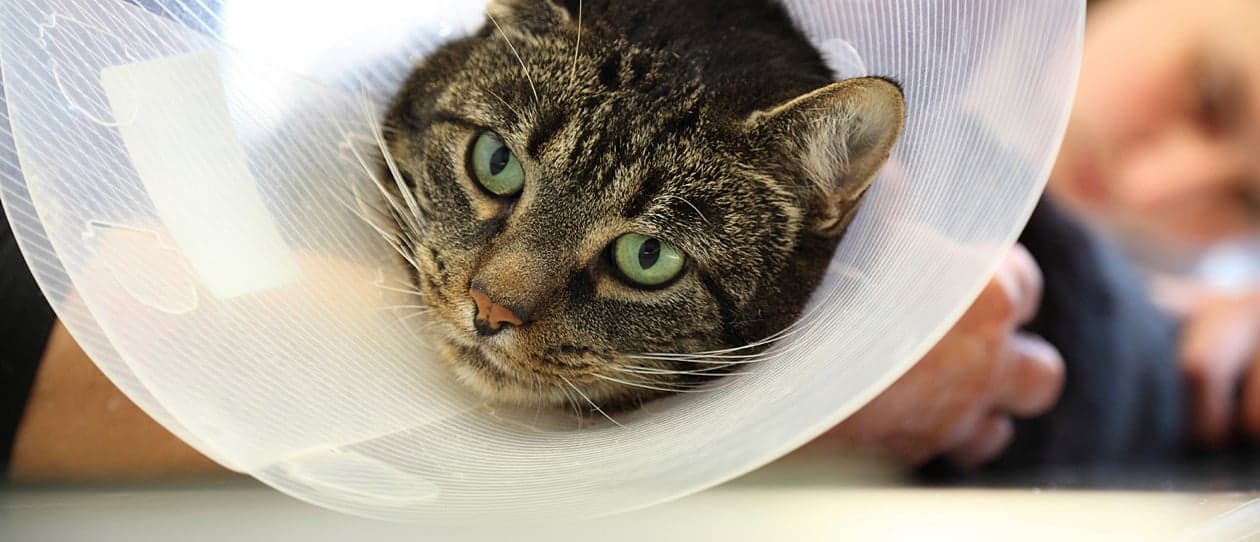
- PAW by Blackmores/
- A Guide To Perfect Your Pet's Health/
- Manage Your Dog's Digestive Health/
- What Can And Can't Cats Eat?


Beef, chicken, turkey – cats love, and need, meat in their diets. “There’s an amino-acid called taurine that naturally occurs in meats, and cats need this in their diets,” says veterinarian Dr Trish Santos-Smith. In fact, she adds, it’s essential for all manner of health reasons, from maintaining normal vision and immune function in your kitty to aiding digestion and ensuring a healthy heart.
“It doesn’t matter if cats get meat from homemade food or commercial food, but it must be included in their diet,” says Santos-Smith, noting that it should also be cooked to avoid being contaminated with bad bacteria, which could cause your pet to vomit or get diarrhoea.
Can my cat eat vegetables?
In general, yes. “But veggies need to be incorporated into your cat’s diet along with meats; they cannot be vegetarian,” says Santos-Smith. There are a few vegetables to avoid, however:- Anything from the allium family, like onions, garlic, chives and leeks, whether raw, cooked or powdered. “Ingestion can damage your cat’s cells and lead to anaemia,” says Santos-Smith. Another reason not to feed your pet scraps from your dinner plate.
- Spring parsley. While some varieties of parsley are harmless, this particular species has been shown to cause photosensitivity in cats – as well as dogs and some other animals – when consumed in large amounts.
Can my cat eat fruit?
It can be healthy to let your cat snack on some fruits, but others should be avoided, says Santos-Smith. Banana, peeled and sliced apples (remove core and all seeds), blueberries, seedless watermelon, cantaloupe and strawberries are all fine. But cats cannot tolerate:
- Grapes or raisins, which may cause kidney issues
- Citrus (oranges, mandarins, lemons, grapefruit), as the high levels of citric acid may cause stomach upsets
- Tomatoes – while red tomatoes are normally healthy for cats, some green varieties may contain toxins
Can I feed my cat bread and olives?
While letting your kitty nibble bread or olives every now and then will not cause any harm, neither food holds any nutritional value, and should not be used as a 'filler' or diet replacement. Your pet may become your best friend when you open a jar of olives – they have a similar chemical makeup to the ingredients in catnip, which cats find a huge turn-on.Can I feed my cat dog food?
While dog food is not toxic to your cat, Santos-Smith recommends not feeding your kitty the same food as your pooch. “Cats need different proteins and nutrients (and different levels of them) to dogs, and, as such, commercial foods have specific formulations to cater to different health needs,” she says.In addition to taurine, cats need vitamin A and arachidonic acid in their diets, which may be lacking from dog foods.
Are any foods toxic to cats?
Most vets recommend not feeding your cat ‘human’ foods, as some may be toxic – a few of them you may find surprising:- Dairy products: Despite all those images of cats lapping up milk, most felines are lactose intolerant, and cannot stomach milk, cheese and other dairy products
- Tuna: Cats are addicted to this fish, with its powerful aroma and robust flavour. But feeding your pet a tuna-heavy diet is not recommended. While a small amount is fine, this fish contains high levels of mercury and, in large doses, could cause poisoning. It also lacks some of the essential nutrients your cat needs. Santos-Smith suggests mixing tinned tuna in with commercial kibble for a tasty pet treat that still has essential nutrients
- Raw eggs, meat and fish. Cats love meat and fish, and often eggs, but all should be cooked before mealtime to avoid being contaminated with E.coli and salmonella bacteria – which can cause your pet serious discomfort and illness
- Chocolate: You’re not giving your cat a treat by slipping them a square of chocolate, whether white, milk or dark. In fact, chocolate contains theobromine, a chemical that is toxic to your kitty. It’s a good idea for cat owners to store stocks of this sweet off the kitchen bench.




